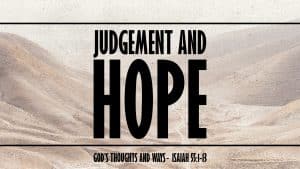
What if…
When our plans don’t go as we expected, and we are in a position to adapt our plans to suit the new set of parameters, life goes a lot smoother. But what happens when the curve ball that is thrown at you is so big, so life altering, that you can’t see a way forward?
What would it be like if you had your education plan, a career trajectory, you wanted to travel, a life planned out, and then something like an unexpected and unwanted pregnancy happened?
The response…
The response to such a situation would vary depending on each individual. But it might look like this:
A young woman finds out she’s pregnant. She’s scared about what her conservative parents will say. She is scared about the affect having time off so early in her life to raise children will have on her planned career path. She has been raised to believe that financial independence and security is vital before even thinking about settling down to start a family – and she has neither. The thought of the responsibility of raising a child is debilitating- she is barely more than a child herself. She has nowhere to turn, the father of the child is just as scared… termination seems a very real option.
A mixture of the ideals she has been raised to value, as well as her fear of judgement from society, and the fear of potential lost by having a baby to raise, all build an overwhelming story where the only way out might look like not having the baby.
It’s not just about the mother and baby…
But what is behind this view that the only way out might be abortion?
Is it, as people say, a choice the mother has to make – has the right to make? Or is it a choice that is influenced by the community around her? Our young woman in the scenario above feels the community around her will judge her. She feels the shame of not living up to the ideals she’s been raised to value. She is scared about having to raise a child alone. Her choice to not have the baby may not feel like a choice at all.
In a podcast for Gospel in Society Today (GIST), Robyn Bain makes the point:
Abortion isn’t just a matter of a woman’s choice. A decision to abort is driven by a whole web of relationships and structures that fail to love, so often the mother, also the father, but always that baby in the name of adult needs
Germaine Greer puts it like this:
“What women ‘won’ was the ‘right’ to … terminate unwanted pregnancies, unwanted not just by them but by their parents, their sexual partners, the governments who would not support mothers, the employers who would not employ mothers, landlords who would not accept tenants with children, the schools that would not accept students with children.
In 2016 we did a series called the Spirit of Jesus, in which one of our people gave a testimony that showed the profound affect a supportive and loving community had on her. The support to see a way forward, the love that slowly chipped away her feeling of shame.
A new what if…
What would it look like to be that supportive and loving community, not just for those in our church, but for all the mothers who are faced with this hard situation? And not just in our church communities, but as a society.
There’s a bill in front of Queensland Parliament at the moment proposing the decriminalisation of termination up to 22 weeks. Which would indicate the solution to such a problem is not to value life by trying to make systemic changes that would help those finding themselves in these difficult positions.
We published a post earlier in the week looking at some of the issues around who Jesus referred to when he called us to love our neighbours as ourselves and how that affects how we think about termination? We have also posted reflections on the seeming impossible tension between loving both the mother and baby in these situations.
I am not suggesting the solution to this is a simple one – in fact it is probably one of the toughest issues facing us at the moment. But is proposing this legislation suggesting that it is a simple solution, that the easiest way out is to legislate what has been to date a hotly debated, emotional, and fraught issue?
I will say again; I am not suggesting the solution to this is a simple one – but I do want us to think about what it would look like to our hypothetical young woman if the community that surrounded her was not one that caused her to fear shame and judgement, but one that she felt she could turn to for support in her situation.
a community to carry each other’s burdens
In the book of Galatians, the Apostle Paul is describing to the church there what a life lived in love for one another looks like:
… rather, serve one another humbly in love. 14 For the entire law is fulfilled in keeping this one command: “Love your neighbor as yourself.” Galatians 5:13b-14
Carry each other’s burdens, and in this way you will fulfill the law of Christ. Galatians 6:2
What might it look like for us to love our neighbour as ourselves – treat them the way we want to be treated – and to carry each other’s burdens?


